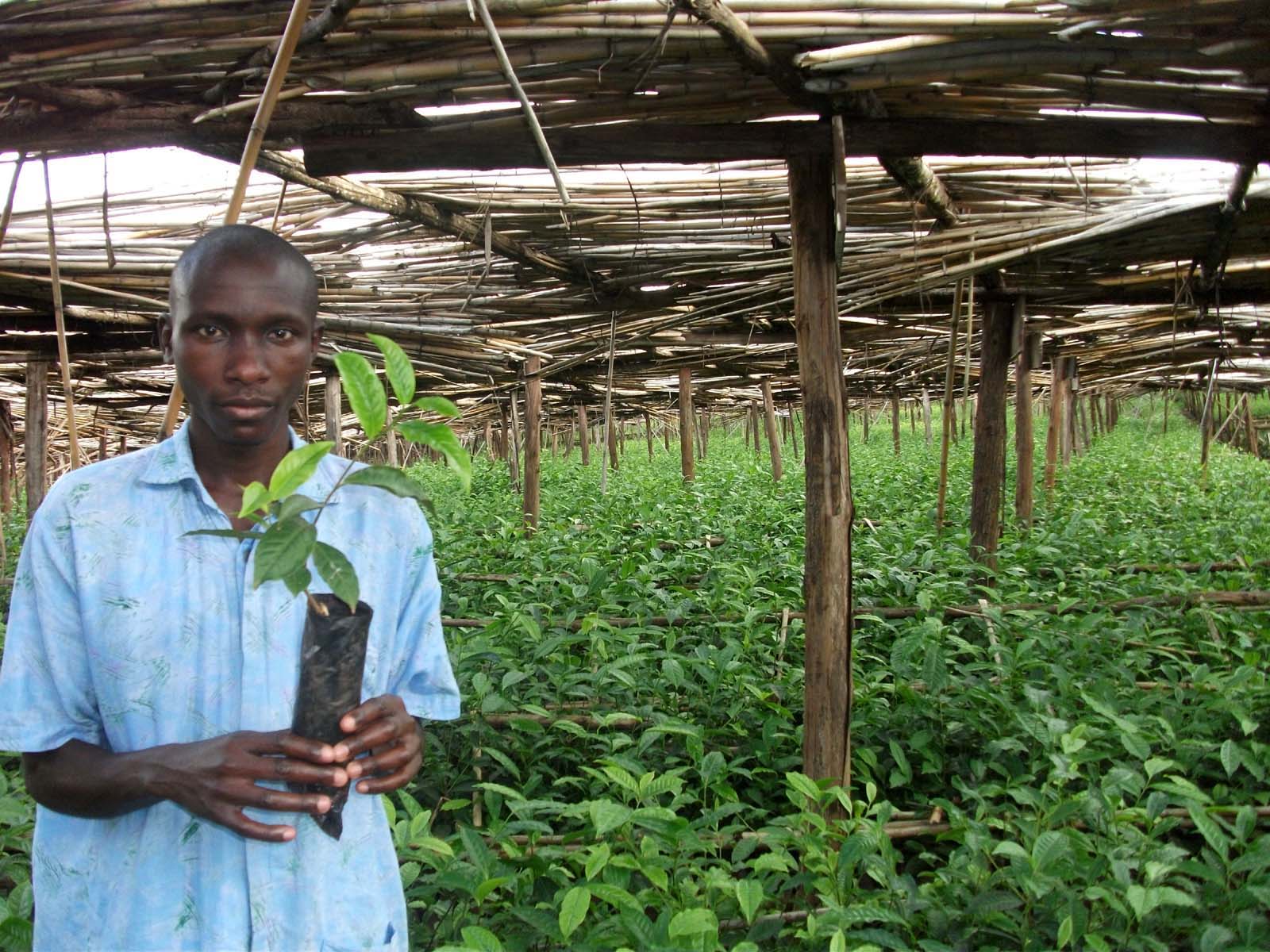Kabarole Investors stuck with millions tea plantlets
Felix Basiime
Kabarole (June 15, 2010)
Mr Steven Kazooba, looks at his more than 300 meter square tea nursery bed at Kyarwabukwari, Kiburara, Hakibale in Kabarole district with crossed hands.
The over Shs 500 million investment has about 5 workers, they need pay, the water pump needs fuel for irrigation. Whenever Kazooba visits his farm, he almost cries, he is stuck with the product in a heavily tea growing region. He has planted over 3 million tea plantlets are ready for sale.
Kazooba is one of the Directors of M/s Steka Enterprises, is one of the investors who have invested lots of money in tea plantlets after government called in private investors to fill the gaps in the industry but are now stuck with them as farmers need them but don’t have enough money to buy.
“Am appealing to government to rescue my over Shs 500 million investment” Kazooba says. He says the farm gate price for each tea plantlet is Shs 250.
In 2008 there was a high demand for tea plantlets mostly in Kigezi region and because of this demand, government asked private investors to raise the tea plantlets.
Tooro region is the land of tea commonly referred to as the ‘Green Gold’, one of the most delicious and sought after teas in the world.
Tea is grown here in the deep, rich and well-watered soils that are unique to the region. In Tooro and in the whole of western Uganda, at least 200,000 people earn their living by plucking the green leaves, earning about US $0.30 equivalent to Shs 678, 000 per day.
Thanks to the temperate climate, tea from the lush plantations is harvested throughout the year. The tea from the farm is of extremely good quality, has a soothing and pleasant taste and is of a rich brown color.
“Tooro Kingdom is renowned for its high quality and big quantities of Uganda tea. Tea alone brings in the country over Shs 300 BN per year” according to Ms Beti Olive Kamya in her December 21, 2009 presentation to Buganda Lukiiko on Regional tier system Vs Federalism.
According to Mr Kasoro Atwooki, a farmer in Kyenjojo, “tea takes the majority of exports in Tooro followed by coffee”.
It is against this background that the tea industry has attracted investors to set up 6 tea factories in Kabarole and 4 in Kyenjojo districts while others have set up tea nursery beds.
“Whenever we go to the fields, farmers ask for plantlets thinking that the factory can buy for them which capacity we don’t have” said Mr Saul Kusemererwa, a Field Manager at Mpanga tea factory.
Government interventions
“We did some supply last year but it was not enough based on the funding we had from NAADS, from Ministry of Finance, it is not enough” says Ms Grace Kazigati, the Kabarole NAADS Coordinator, adding, “We presented this to the Ministry of Agriculture, we know there is high demand by farmers and there are private suppliers ready with the plantlets but it is just a question of funds nothing else”
So what is the missing link?
“The missing link in the tea industry in this region (Tooro) is where farmers and investors have failed to add value to the processed tea, packing and blending is another problem” reasons Kasoro Atwooki, one of the oldest farmers in the area.
He adds, “Infrastructure development is another problem, the feeder roads are poor making it difficult for tea to reach the factories in time”
In puts to farmers is another problem. “If there could be a system to provide inputs at a subsidized rate, the better although government in 2006 and 2009 provided free plantlets to the farmers” says Kasoro.
Mabale Tea Factory, one of the 4 factories in Kyenjojo district, is out growers based plant. It is now owned by about 800 peasants following the privatization of public enterprises in Uganda in the 1990s.
Without any tea estates of its own, the factory produces 3 million kg in 2 months, which is about 10 per cent of Uganda's annual tea export, to the world market.
Tea industry in the Tooro region has attracted hundreds of migrant workers who come from south West Uganda and others come from as far as the Democratic Republic of Congo.
END

No comments:
Post a Comment